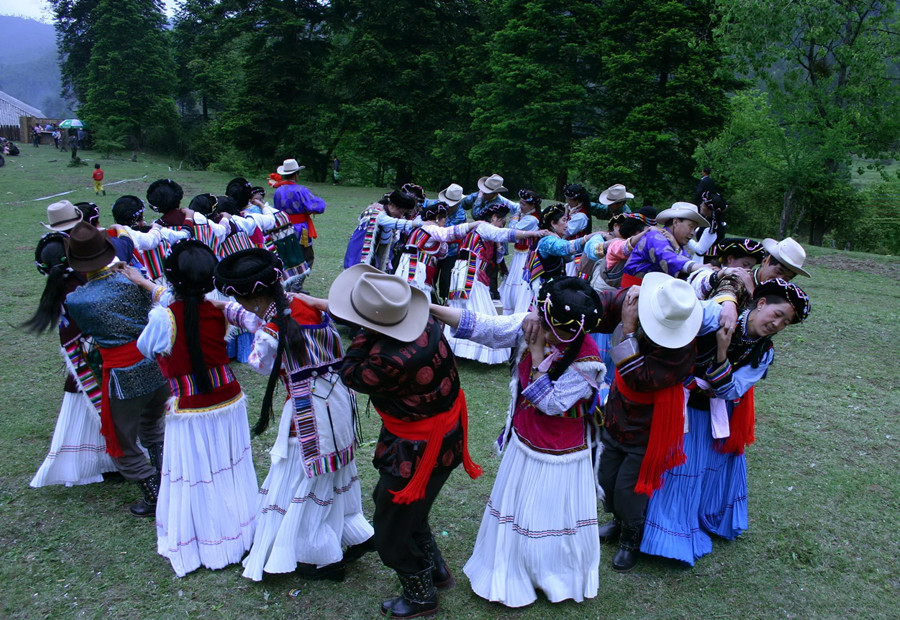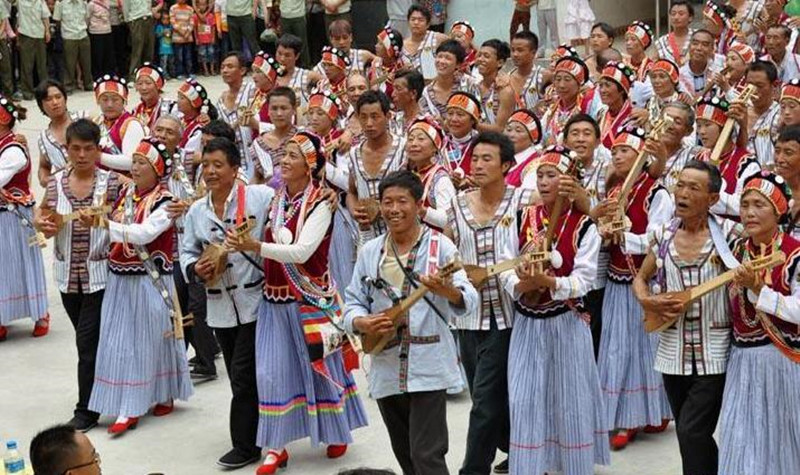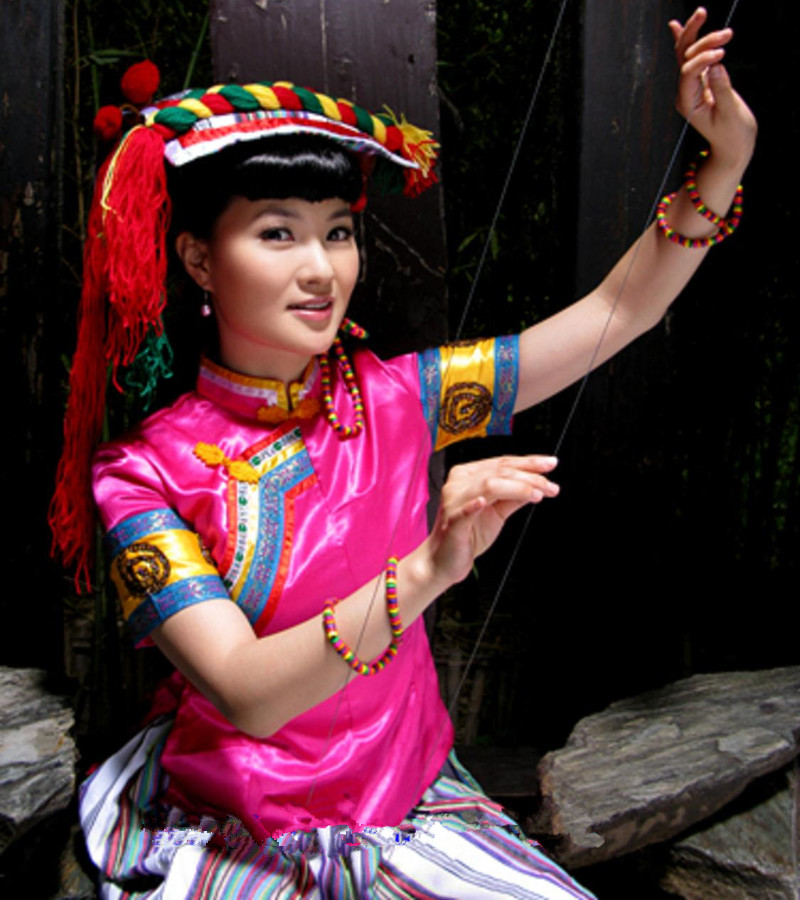Nu Ethnic Minority
Nu ethnic minority is one of the ethnic groups with a smaller population. Nu people mainly live in Nujiang Lisu Autonomous Prefecture, with a population of more than 30,000. Nu ethnic minority derives its name from the fact that Nu people live on both sides of the Nujiang river. It is one of the ancient ethnic groups on both sides of the Nujiang river and Lancang river. History of Nu Ethnic Minority From many neolithic relics and related legends collected from the Nu area, it can be seen that the Nu people were probably still in the late stage of neolithic before the 16th century, when they used wooden and bamboo mattock as well as stone mattock. In the 16th and 17th centuries, in addition to the use of stone hoe as tools for agricultural production, gathering and hunting also accounted for a large proportion. Since the 8th century, the Nu area has been under the jurisdiction of Nanzhao and Dali governments in Yunnan. After Yuan and Ming dynasties, they were ruled by Naxi Mu’s Tusi in Lijiang. In addition, Lisu leaders who had moved into the Nu area began to expropriate the land and even rob the population into slavery. Thus, the Nu people not only had to pay tribute to the Tusi of Naxi, Tibetan and Bai, as well as lamaseries, but also had to be oppressed and exploited by the Lisu rulers. In the spring of 1950, the whole area of the Nujiang was peacefully liberated, and a new page was opened in the history of the Nu people. Distribution of Nu Ethnic Minority Nu ethnic minority is mainly distributed in Nujiang prefecture‘s Lushui, Fugong, Gongshan and Lanping, as well as Diqing prefecture’s Weixi and Tibet’s Zayu county. Nu ethnic minority is intermingled with Lisu, Dulong, Tibetan, Bai, Han, Naxi and other ethnic groups. Autonomous Area
Gongshan Dulong and Nu Autonomous County
Nu Ethnic Town
Pihe Nu Ethnic Town of Fugong County, Nujiang
Culture of Nu Ethnic Minority Language Nu people have their own language, and besides Nu language, they speak many languages like Lisu language and Naxi language. Nu people have no written language of their own, so they use Chinese characters. Because of long-term coexistence with Lisu ethnic minority, most Nu people can speak Lisu language. Religious Belief Nu people mainly believe in primitive religion, believing that all things have their owns spirits, and worship the wind, rain, sun, moon, stars, time, mountains, forests, trees and stones. The Nu people worship ghosts and gods. The ghost spirits believed in in Fugong area are more than 30 kinds including clan ghost spirits, natural ghost spirits, disaster and disease ghost spirits, etc. Gongshan Nu people believe in more than ten kinds of ghosts such as mountain ghosts, water ghosts and road ghosts, while there are also more than ten kinds of gods including mountain gods, tree gods, hunting gods, water gods and crop gods. The sacrificial ceremony of nature worship of the Nu ethnic minority is mainly completed by the “Nima” or “Nimaren” priests or sorcerers, who are very knowledgeable people in the Nu society. Influenced by the Tibetan, some people also believe in Tibetan Buddhism. In the late 19th century, after the imperialists brought Catholicism and Christianity to the Nujiang area, some people converted to Catholicism and Christianity. Music Singing is also one of the most popular folk social activities in the life of the Nu people. It is not only the natural expression of the aspirations of the Nu people, but also the direct representation of their thoughts and emotions. During celebrating festivals, planting, hunting, building houses, celebrating the harvest and holding weddings, people would sing songs to express and enjoy themselves. Among them, the influential and representative works are “sitting and singing beside the fireplace”, “sacrificing hunting god tune”, “wedding song”, “Ruodeng tune” and “sacrificial song”. Cultural Heritages of Nu Ethnic Minority
Dabiya Folk Dance of Nu Ethnic Minority Oh De De- Folk Song of Nu Ethnic Minority Ruorou Language of Nu Ethnic Minority Culture and Customs of Nu Ethnic Minority
Inheritors
Li Hanliang Bo Yisi Lu Jiya A Zhen
Festivals and Activities of Nu Ethnic Minority
Peach Blossom (Taohua) Festival New House Congratulations Ceremoney New Rice (Xinmi) Festival Mountain Forest Worship Festival Jigushen Festival of Nu Ethnic Minority Jijiamu Festival of Nu Ethnic Minority Spring Festival (Luse) of Nu Ethnic Minority Flower Festival (Fairy Festival) Rumiqi Festival of Nu Ethnic Minority Flowers Festival of Nu Ethnic Minority
Keep Reading
Bingzhongluo Town Nu Ethnic Culture Protection Area in Gongshan County, Nujiang

 7 Days GolfingTour
7 Days GolfingTour
 8 Days Group Tour
8 Days Group Tour
 8 Days Yunnan Tour
8 Days Yunnan Tour
 7 Days Shangri La Hiking
7 Days Shangri La Hiking
 11 Days Yunnan Tour
11 Days Yunnan Tour
 6 Days Yuanyang Terraces
6 Days Yuanyang Terraces
 11 Days Yunnan Tour
11 Days Yunnan Tour
 8 Days South Yunnan
8 Days South Yunnan
 7 Days Tea Tour
7 Days Tea Tour
 8 Days Muslim Tour
8 Days Muslim Tour
 12 Days Self-Driving
12 Days Self-Driving
 4 Days Haba Climbing
4 Days Haba Climbing
 Tiger Leaping Gorge
Tiger Leaping Gorge
 Stone Forest
Stone Forest
 Yunnan-Tibet
Yunnan-Tibet
 Hani Rice Terraces
Hani Rice Terraces
 Kunming
Kunming
 Lijiang
Lijiang
 Shangri-la
Shangri-la
 Dali
Dali
 XishuangBanna
XishuangBanna
 Honghe
Honghe
 Kunming
Kunming
 Lijiang
Lijiang
 Shangri-la
Shangri-la
 Yuanyang Rice Terraces
Yuanyang Rice Terraces
 Nujiang
Nujiang
 XishuangBanna
XishuangBanna
 Spring City Golf
Spring City Golf
 Snow Mountain Golf
Snow Mountain Golf
 Stone Mountain Golf
Stone Mountain Golf













